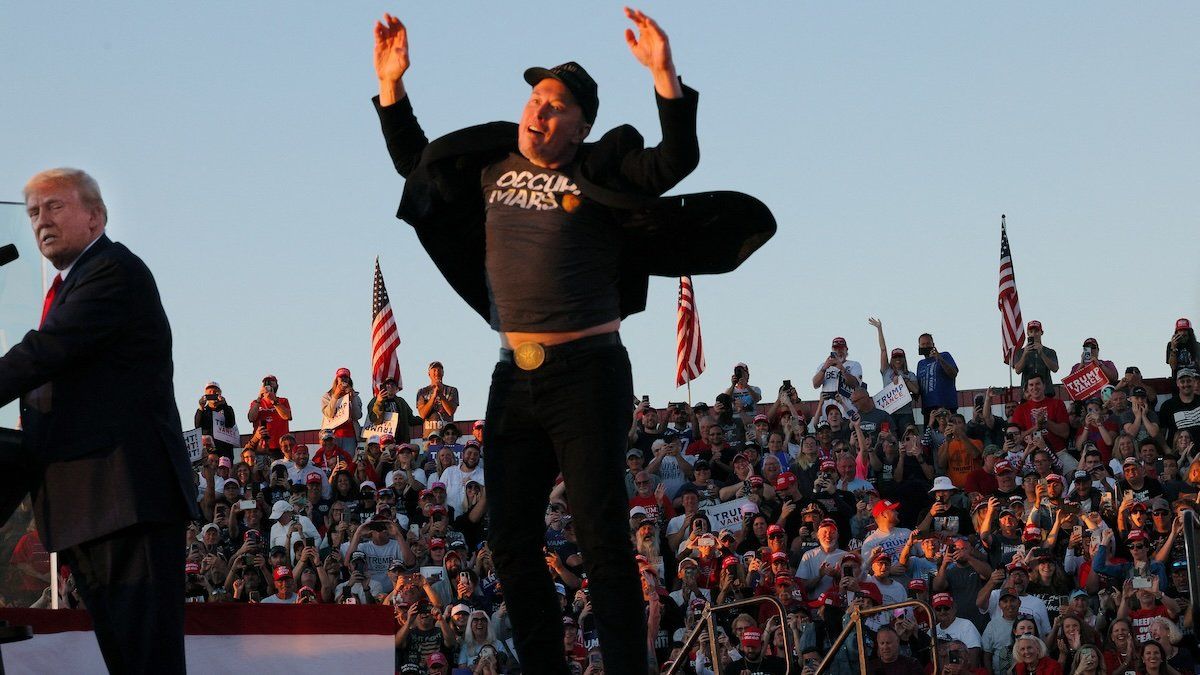Elon Musk, the world’s wealthiest person, has thrown his full weight behind former President Donald Trump’s presidential campaign.
Musk endorsed Trump in July after a gunman attempted to assassinate the former president at a Pennsylvania rally. In the time since, he’s spent millions to help Trump get elected, echoed conspiracy theories spread by the ex-president, and taken to the campaign trail to muster support for the GOP presidential nominee. But will it be enough to propel Trump to victory?
How influential is Musk? Through his various business holdings, Musk has the capacity to shape everything from public discourse and space travel to internet access in war zones.
For years, Musk — who has a net worth of $265 billion — was best known as the owner of Tesla and SpaceX. But in 2022, he acquired X (formerly Twitter). Musk has taken controversial steps since purchasing the social media platform, ranging from using his personal account with 201 million followers to spread outlandish, false claims to restoring accounts that had been banned for spreading misinformation, including Trump’s.
After Hurricane Helene devastated North Carolina last month, for example, Musk took to X and amplified baseless claims about the federal government seizing and blocking aid from being distributed, among other groundless assertions. Subsequently, there have been reports of FEMA aid workers being threatened, leading the agency to adjust operations — including stopping door-to-door visits.
This is just one example of the power Musk wields via his immense wealth and ownership of X, a major public forum. The erroneous information he’s helped spread has complicated hurricane relief efforts, making it harder to get aid to victims.
Can Musk sway the 2024 presidential election? Even before he publicly endorsed the former president,Musk launched a pro-Trump super PAC — America PAC — and pumped $75 million of his own money into it between July and September. America PAC has primarily focused on canvassing, digital operations, and direct mail.
Meanwhile, Musk has hit the campaign trail in swing states like Pennsylvania — even appearing onstage with the former president — as part of his efforts to boost Trump’s campaign. But Musk is a highly divisive figure, and polling suggests he could struggle to appeal to on-the-fence voters who could be crucial to winning in November.
A recent NBC News poll found that just 31% of independents view Musk positively. That said, the billionaire is fairly popular with Republican voters. The poll found 62% of GOP voters have positive feelings about Musk, though only 7% of Democrats said the same.
It remains to be seen whether Musk’s efforts to help Trump win will pay off. His super PAC has stumbled in its canvassing efforts in key battleground states due to problems linked to last-minute vendor switches and hiring struggles. Musk himself has acknowledged these setbacks. In response to a tweet about the super PAC’s woes earlier this month, he said, “Sorry, so many dumb things happening. Working on fixing.”
What does Musk get out of this? If the election goes the way the billionaire wants, Musk could be given a great deal of credit and gain even more influence over Trump as the former president once again assumes the most powerful office on the planet.
Trump has even suggested that he might offer Musk a spot in his Cabinet. He’s also discussed making Musk the head of a government efficiency commission, which could give the billionaire sway over rules that impact his companies. This could help explain why Musk has gone all-in on Trump’s campaign, despite once privately referring to the ex-president as a “stone-cold loser.”
Musk has openly admitted to supporting Democratic candidates in the past, but in 2022 he said he would start voting Republican because Democrats were now the party “of division & hate,” without elaborating. That same month, Musk also said he was switching to the GOP because of “unprovoked attacks by leading Democrats against me & a very cold shoulder to Tesla & SpaceX.”
Along these lines, it seems that Musk’s support for Trump is motivated by personal and transactional reasons as much as anything else. Musk’s companies have already received billions from the US government — SpaceX, for example, raked in $14.7 billion over the past decade in federal launch prime contracts. Trump could be a gateway to even more government money for Musk if he defeats Vice President Kamala Harris.
